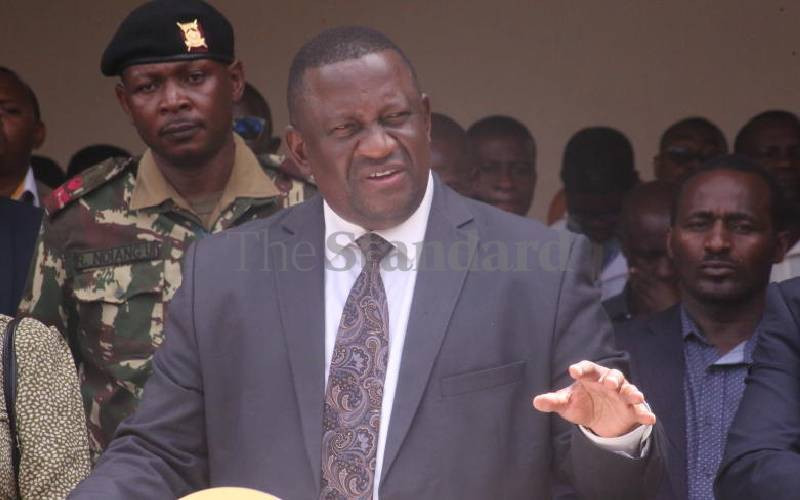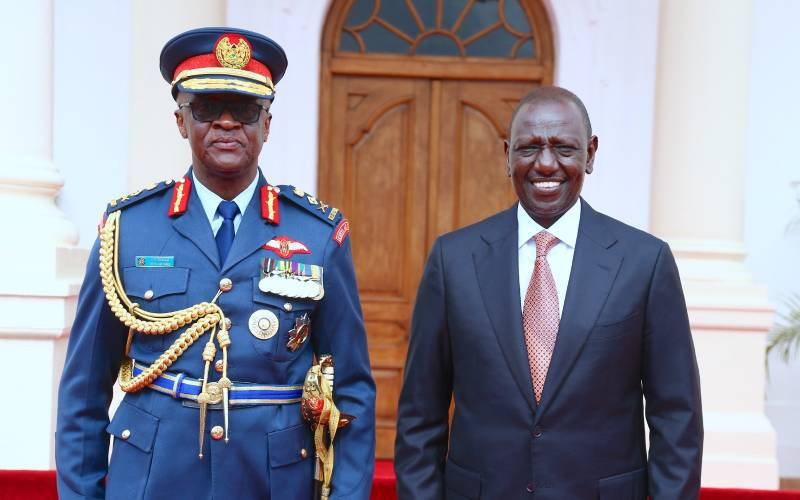Covid-19 is a health, economic and democratic challenge. The pandemic is a human security crisis because it is depriving Kenyans their freedom from fear, freedom from want and freedom to live with dignity.
The pandemic is placing severe strains on health and the economy, which, if mishandled, would degenerate into a political and security crisis. Already, the economy had serious pre-existing vulnerabilities before Covid-19.
The pandemic has already led to the closure of businesses, reduction of inter and intra-county commerce, and disruption of both domestic and global supply chains. Unemployment is also rising rapidly. The economic contraction will be unprecedented.
Coherent and all-inclusive actions are therefore needed to reduce the risk of rapid spread and severe shocks. The country must have evidence-based decision making to combat the pandemic effectively. All response efforts must be based on scientific evidence and data, must be depoliticised, and have a high degree of openness and transparency.
The national and county government interventions should proceed from a common understanding and cooperation, guided by joint comprehensive Covid-19 response strategy. Data on infections should be used to produce well-defined clusters to inform actions. County governments that have instituted successful measures in containing coronavirus infections should serve as models.
Both national and county governments will need a serious rethink and reorientation for the Financial Year 2020/2021 budgets, considering the adverse effects of Covid-19 and the frightening problem of a huge debt, massive revenue shortfall and prolonged economic crisis.
In addition, we should address the big question of how to manage health restriction measures as we go back to a ‘new normal’ of living social and economic life while co-existing with the virus. Notably, the curfew and lockdown measures were supposed to minimise the risk of transmission, decrease the spread of the virus and ‘buy time’ for health care systems to cope in case of huge numbers of patients.
By now, county governments should have had local Covid-19 testing capacity, tracing, quarantine and treatment. But that is yet to happen. That's why the reopening of the economy should not be done at a go.
A clear national testing strategy for targeted but widespread free testing is needed to establish a clear picture of the nature and scope of the Covid-19 crisis and to identify who is infected, suppress the resurgence of community transmission, identify people who have developed some form of immunity and gain health intelligence on the evolution of the epidemic. This has been very limited.
Core prerequisites
Reopening the country cannot be based on a ‘one-size-fits-all’ approach. The government must assign levels of lockdown restrictions for each of the 47 counties depending on the number of active coronavirus infections per county with a two-week situation review mechanism.
The core prerequisites for testing as a key element for relaxing current restrictive measures include scientific knowledge, planning, demand for needed equipment and coordination in procurement, building capacity to execute county-based tests, and managing information.
Finally, it is critical to ensure healthcare capacity and resource needs are increased for safe and effective management of emerging Covid-19 cases in counties where restrictions are removed.
There is need to understand the virus better, including the extent of asymptomatic and symptomatic spread; immunity and its duration in those who contracted the virus; and the impact of changes in temperature on the disease spread. Information about the presence and propagation of Covid-19 in the population needs to improve significantly.
For this, continuous widespread testing and effective contact tracing are key components of the post-lockdown strategy.
Stay informed. Subscribe to our newsletter
Mr Wainaina is executive director, International Centre for Policy and Conflict. @NdunguWainaina
 The Standard Group Plc is a
multi-media organization with investments in media platforms spanning newspaper
print operations, television, radio broadcasting, digital and online services. The
Standard Group is recognized as a leading multi-media house in Kenya with a key
influence in matters of national and international interest.
The Standard Group Plc is a
multi-media organization with investments in media platforms spanning newspaper
print operations, television, radio broadcasting, digital and online services. The
Standard Group is recognized as a leading multi-media house in Kenya with a key
influence in matters of national and international interest.
 The Standard Group Plc is a
multi-media organization with investments in media platforms spanning newspaper
print operations, television, radio broadcasting, digital and online services. The
Standard Group is recognized as a leading multi-media house in Kenya with a key
influence in matters of national and international interest.
The Standard Group Plc is a
multi-media organization with investments in media platforms spanning newspaper
print operations, television, radio broadcasting, digital and online services. The
Standard Group is recognized as a leading multi-media house in Kenya with a key
influence in matters of national and international interest.








